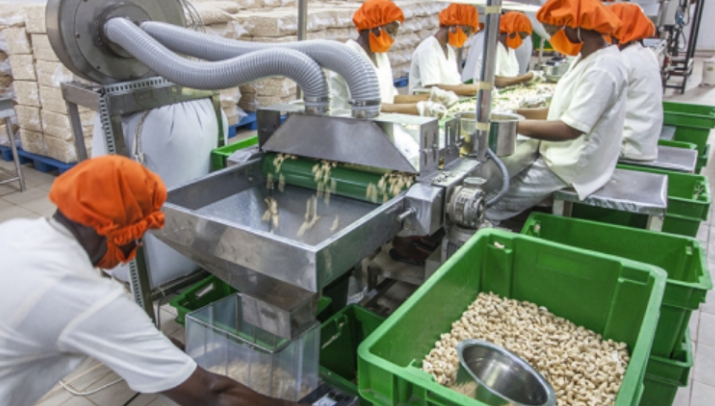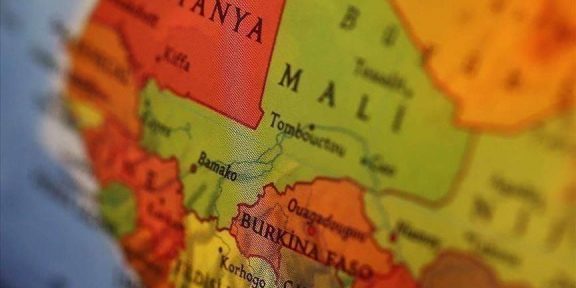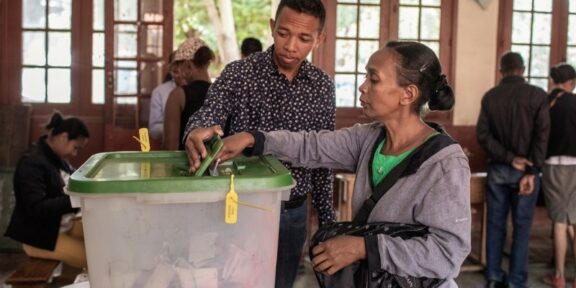While Benin’s cotton sector – a major source of President Patrice Talon’s wealth – has benefited greatly from the country’s reforms, actors in other sectors are calling for more support.
Benin is still the leading cotton producer in West Africa, with more than 700,000tn harvested in the 2020-2021 season. It has held this position since 2018 and intends to maintain it, aiming for a target of 800,000tn next season.
This success reflects President Patrice Talon’s efforts to develop agriculture, which represents 25% of GDP, employs 70% of the working population and provides 75% of the country’s export earnings.
But while cotton (53% of the country’s exports) has benefited greatly from these reforms, other sectors are struggling. This is a sign that the reforms aimed at modernising the country’s agricultural sector have not yet borne all their fruit.
There has certainly been progress on one point: a boom in production including cashew nuts (from 91,608tn in 2015 to 130,276tn in 2019), soya (from 139,909tn in 2015 to 257,000tn in 2019), maize and rice, as well as market gardening (from 633,86tn in 2015 to 706,346tn in 2019).
Pineapple production, after increasing sharply until 2014, will remain at around 350,000tn per year.
In 2020, despite unfavourable world prices, the closure of the border with Nigeria and the Covid-19 pandemic, most sectors have managed to keep afloat.
Six priority sectors
These advances are the result of significant public investments – more than 600bn CFA francs at the end of 2020 – but also due to a successful strategy.
The aim is to concentrate resources on six priority sectors (cotton, maize, rice, pineapple, manioc and cashew nuts) and to create seven agricultural development clusters, each of which will concentrate on the high-potential crop of its area, supported by a regional agency.
To meet the financing needs of producers, the Fonds National de Développement Agricole (FNDA) has been reactivated and allocated 100bn CFA francs. It has been tasked with granting loans.
Access to seeds and inputs has improved for cotton growers as well as for other farmers when technical support is extended to the local level.
While the whole agricultural sector has benefited from these measures (with nearly 170,000 jobs created between 2016 and 2019), the cotton sector – dominated by companies owned by members of the Talon family and people close to the President – has taken the lion’s share.
It has seen the most rapid reforms. Overseen by the Ministry of Agriculture since 2012, the sector’s management has been handed over to the private sector via the Association Interprofessionnelle du Coton (AIC).
This overhaul has led to the exponential growth in production, which in turn has increased revenues for the ginning companies as well as for the Société pour le Développement du Coton (Sodeco, also in the Talon family’s portfolio), which ensures the national supply of fertilisers and its supplier, the Moroccan group OCP.
Strengthening competitiveness
Cotton farmers have also, to some extent, seen their incomes rise thanks to the rise in the purchase price set by the state: at 265,000 CFA francs per tonne, it is above the average for the sub-region.
In comparison, progress in other sectors – including cashew nuts (9% of the country’s exports) and pineapple – remains modest. Although their production has increased, it remains less than half of the target set for 2021, which was 300,000tn of cashew nuts and 600,000tn of pineapple.
Compared to the state’s massive support for cotton, it has been more measured and recent for these two crops.
It was not until 2020 that a plan to strengthen the competitiveness of these sectors (Pacofide) was launched, which includes rehabilitating 135,000ha of cashew nut plantations and 10,000ha of pineapple plantations.
In both cases, local private operators – who are facing stiff competition for cashew nuts (from India and Vietnam) and pineapples (from Latin America) – are calling on the state to structure their sectors and protect them further through fiscal measures.
A model that would combine a return on investments by processors and a satisfactory income for farmers has not yet been devised for these crops.
The organic pineapple challenge
Between February and March 2020, the Agence de Promotion des Investissements et des Exportations (Apiex) visited Tanzania and Mozambique, two important cashew nut producers, to identify good practices. The mission was organised by the NGO TechnoServe, which runs the BeninCaju programme, and in which the two main players of the sector – Fludor Bénin (a subsidiary of the Nigerian group TGI) and Tolaro Global (of the Moringa fund) – participated.
The pineapple sector, on the other hand, is betting on organic production (in parallel with conventional production), which ensures better income for farmers. While the ‘sugar loaf’ pineapple received the ‘geographical indication’ label in 2019, the public authorities are encouraging the installation of processing units.
It is on this last point that much remains to be done, for all the crops. Although the pineapple sector is showing good results – the share of locally processed production jumped from 15% in 2016 to 50% in 2019 – this success in a niche market remains exceptional.
A special economic zone in Glo-Djigbé
There is still little domestic processing of cotton and cashew nuts. To develop it, President Talon is investing in the rehabilitation of abandoned factories, the construction of a special economic zone in Glo-Djigbé (commune of Abomey-Calavi) to attract investors, and on a plan to mechanise the sector in order to increase farm productivity.
While some private players are calling for the introduction of processing subsidies – as Côte d’Ivoire is doing with cashew nuts – many observers stress that financial support for the local industrial fabric will also be needed to help it seize these opportunities. Without specific support, foreign groups are likely to move in on the act.
Source: The Africa Report









